The Afrolatin@ Theatre Series
Actress, Writer, and Theatre Mogul Florinda Bryant
Addressing the call to action in the article “Why We Need Afrolatin@ Theatre,” this series highlights many outstanding Afrolatin@ theatre artists around the United States who diligently offer the world their art. This first installment profiles actress, writer, and Salvage Vanguard Theater’s Managing Director Florinda Bryant.
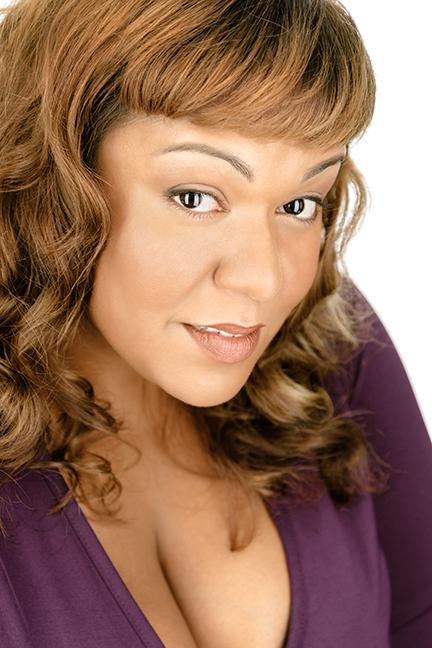
Bryant’s pride in her identity as a Black Mexicana, biracial, African American, and Latina is a testament to the fact that multiple identities can occupy one space. Identity is something that the actress’ work addresses quite frequently.
I met the vibrant Florinda Bryant in May of 2015 when she was performing in a staged reading of my play The Stories of Us. I knew that I wanted to continue working with her the moment she took a line that I had no intention of being humorous and made the audience laugh. There is something about certain people who have a spark and Bryant has it. After the performance, I got the chance to speak with her and was deeply inspired by her passion for theatre and telling Black and Brown stories.
After sitting down with Bryant, I found that performance wasn’t something that she learned to do, but rather something that she was born to do. “I danced before I walked. I sang before I talked,” she exclaimed. In fact, art was a staple in her home growing up. Her mother was a poet, and there was always music and dance in the household. Naturally, this colorful upbringing motivated her to pursue a career in theatre. A conversation with her grandma about being a professional actress led her to be instilled in her the importance of being intentional about her career. She didn’t just want to be a “famous” actress; she wanted theatre to be her livelihood.
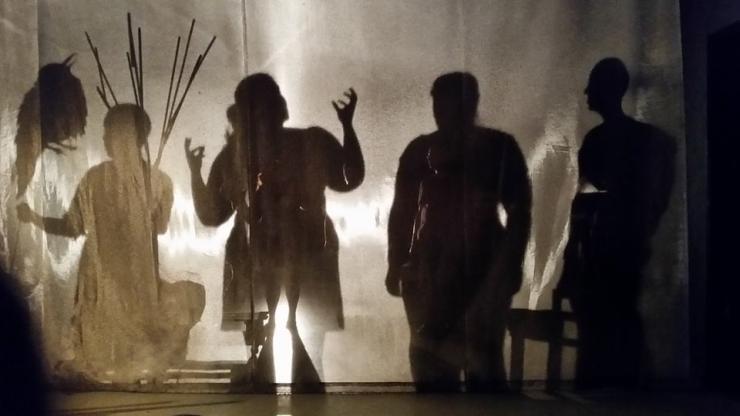
Bryant’s long and illustrious career has allowed her to grace the stages of Salvage Vanguard Theater, the Rude Mechs, the Vortex, Paper Chairs, and Teatro Vivo. She was recently tearing up the stage in some Austin favorites including Am I White (by Adrienne Dawes), Bright Now Beyond (by Daniel Alexander Jones and Bobby Halverson), The Panza Monologues (by Virginia Grise) and Fixing King John (adapted by Kirk Lynn). It seems like she is always creating something. “I’ve always been able to hustle and make it happen,” she says. It’s that type of tenacity that has kept this artist rocking the theatre scene. Bryant is directing and performing in Denim Dove for the Salvage Vanguard and directing The Stories of Us for Teatro Vivo this spring.
Bryant’s pride in her identity as a Black Mexicana, biracial, African American, and Latina is a testament to the fact that multiple identities can occupy one space. Identity is something that the actress’ work addresses quite frequently. Her award-winning one-woman show Half Breed Southern Fried was performed in the Performing Blackness Series at the University of Texas at Austin in 2006. The piece brought to light her experiences navigating the world as an Afrolatina. This work in a space like Texas, where the terms “Black” and “Latin@” are often seen as mutually exclusive, is extremely important. Even more so, in spaces where Afrolatin@ is budding like Texas, our common histories are just now starting to be discussed.
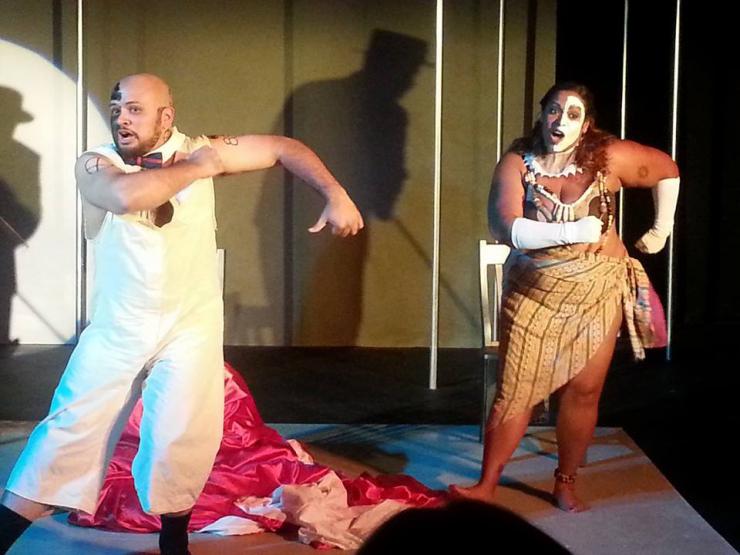
My work exists as testimonial to my experience. It is selfish; I do this work to save myself and remind the world of my presence. —Florinda Bryant
An inspiring individual, Bryant’s passion for advocacy was manifested in her role as operations manager for the Austin-based educational program, Creative Action. In the program, she relished in the chance to impact the next generation in the field of the arts through organizing workshops focused on theatre and social change. In addition to working with Creative Action, she has also imparted the passion of theatre to at risk communities, young men and women and adults for the past eighteen years. For her work in the community, she was named the 2013 Woman of the Year for Racial Justice award recipient from the YWCA.
Bryant’s passion for Afrolatin@s in theatre is evident. When I asked her about why Afrolatino are needed in theatre she brought up a great point: “Ain't nobody asking White people to explain/justify/argue their importance.” No one asks White theatre artists to validate their work. Because Afrolatino work is so scarcely represented, we need to dedicate time to highlighting it. However, it should already be in the forefront on our stages, in our classrooms, and in theatre festivals across the US. It should be a testament to our experiences and no one should be able to take that away. “My work exists as testimonial to my experience. It is selfish; I do this work to save myself and remind the world of my presence,” says Bryant. As an artist, Florinda’s works to “save herself,” which ends up saving others. It’s a wonderful feeling to see, as Bryant says art as a “reflection of our society.”
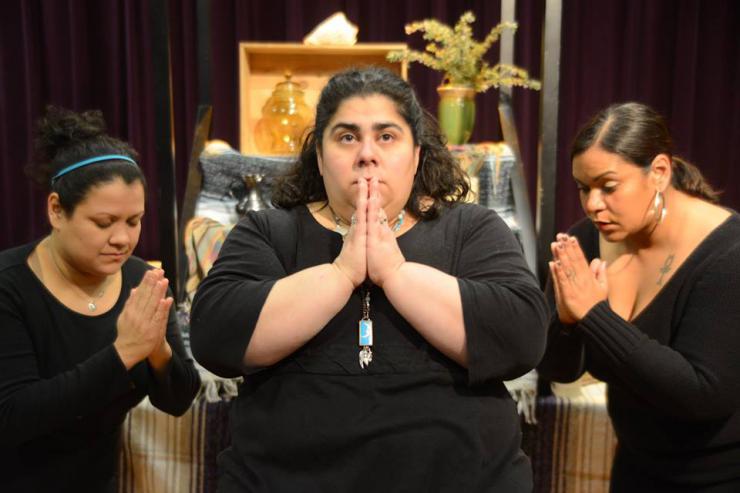
It's not just the representation of Black and Brown people separately that is significant, but the telling of our shared bonds on the stage. This is exactly what the Stories of Us seeks to do. Bryant notes:
“As oppressed peoples whose victory against the oppressor is only achievable when those oppressed unite and work to together. There is strength there when the black and brown work together. And when the black and brown come together in love, well you get folks like me/us. We magic walking baby.”
Bryant is the true definition of an artist. She finds inspiration in “people that keep going” and people that “stay in the fight” because she is a fighter herself! She even encourages her son to pursue his artistic passions as well. The two have even acted together. Like Bryant, we all have the power to create wonderful and meaningful theatre that entertains and creates change. We just have to get out there and do it. But the self-doubt that Bryant talked about is sometimes what stops us. When asked about her advice for artists who want to get involved in theatre, her reply was short but profound. “Do it. Get out there. What are you waiting on?”
Well, what are you waiting on? Take a page from Florinda’s book and just do it. If you have a play inside of you, start writing. If you have something to say through poetry do it, especially stories about Afrolatin@s and other people of color. Often times we remove ourselves from the narrative because we are nervous about our work being presented, or what others will think about it. Remember that whatever you have to say is important and someone needs to hear it.

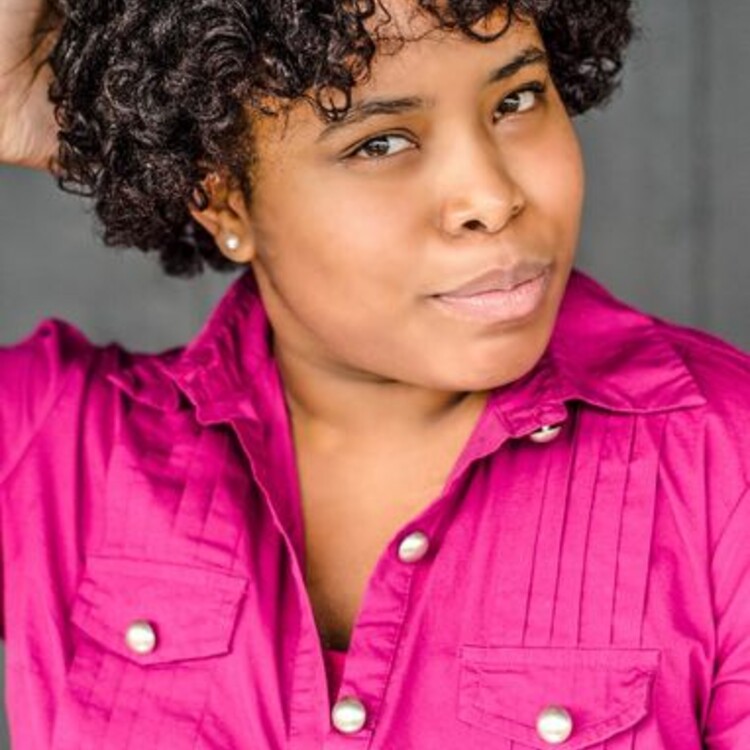
Comments
The article is just the start of the conversation—we want to know what you think about this subject, too! HowlRound is a space for knowledge-sharing, and we welcome spirited, thoughtful, and on-topic dialogue. Find our full comments policy here
Thanks Jelisa for this new series!!! I can't wait to read the more upcoming pieces from this series.
I'm also looking forward to learning more about Afro-Latin@ teatristas. This is such important work that you are doing, Jelisa!
Thank you! I love these artists! Let me know if you have reccomendations for other artists!